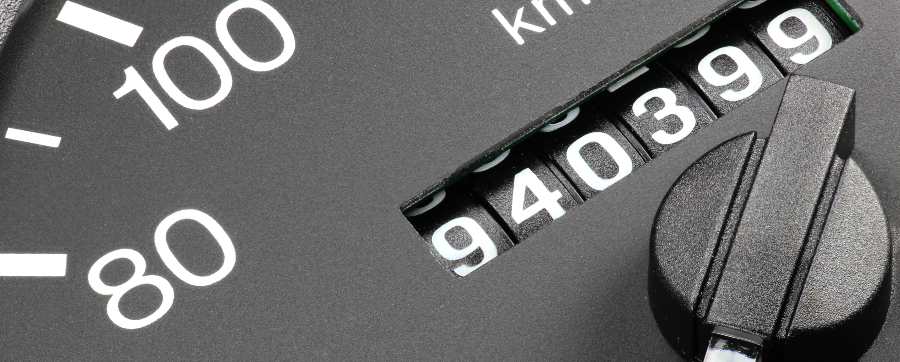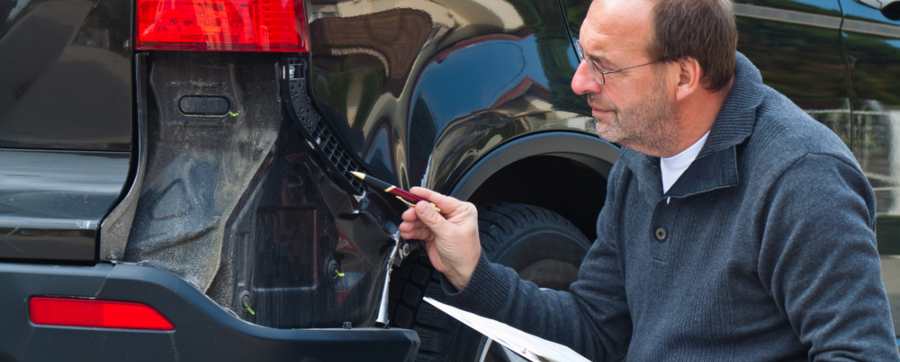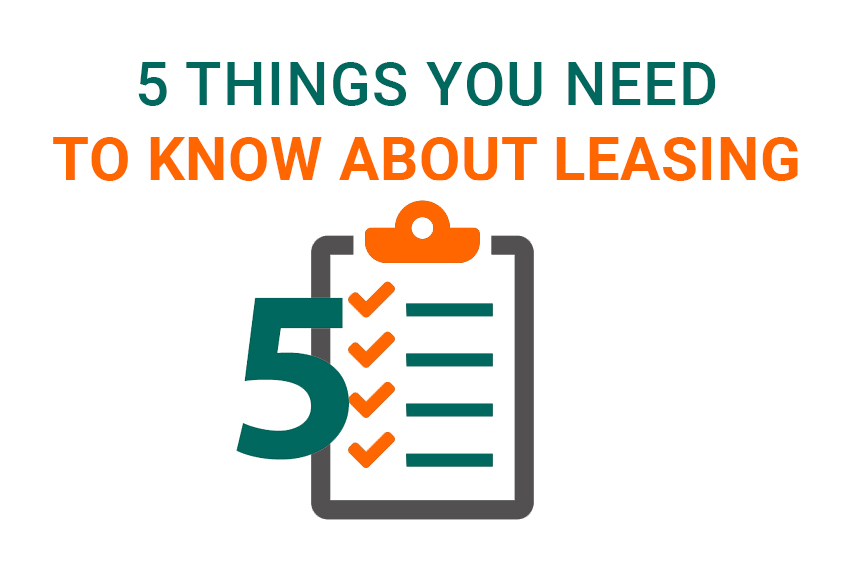If you’re looking for a new vehicle and you know that you want to pay a fixed monthly cost that is lower than if you were to get a credit agreement or a hire purchase, then it’s definitely worth considering getting a lease.
Leasing is essentially where you have a car for a set period of time while paying a monthly rate. Once the agreed time is up then you hand the car back. Of course, you have to keep the vehicle in good condition and stick to a pre-agreed annual mileage allowance (though this can be extended).
Leasing is a good option if you like the idea of having a brand new car every few years or you don’t want to be tied to the commitment of actually owning a vehicle.
However, before you jump right into leasing a vehicle, there are some things you should be aware of.
In this article, we are going to look at things you need to know before you lease a vehicle.
Looking for a new vehicle but not sure what’s available? Sign up for our weekly newsletter and get new vehicle special offers sent straight to your inbox.
Newsletter Signup
How are lease costs calculated?
A typical lease lasts for two to three years. Broadly speaking, the amount you pay over the duration of the agreement is based upon expected depreciation.
The depreciation is how much value the car loses over the course of the lease. There are a few things that affect this amount:
- Condition of the car
- Mileage
- Mileage is a huge factor when it comes to depreciation. The more miles the car has done the lower the value
- Warranty
- Efficiency
- The number of owners
- Popularity
- Service history
- Reliability
Comparatively speaking, cars that tend to hold their worth for longer are the ones that are offered for a better monthly price. This is due to the fact that when you lease a car you pay for depreciation – how much value the car loses. Therefore, the lower the depreciation the better the lease deal. Which is why cars that depreciate slowly are a better option when it comes to leasing.
However, that isn’t the only thing that impacts how a lease price is calculated. Generally, the cost of a Contract Hire is calculated as follows:
(purchase price – estimated residual value) / months on contract and annual mileage + admin fee = monthly payments
Want to speak with someone about a new vehicle lease? Contact the experienced team at OSV and let us help. Request a callback or call us now on 01903 538835.
How can I lower my lease price?
There are a few things that you can do to lower your lease price, such as:
- Getting a longer contract
- Though this isn’t always the case, as the longer the contract the more the car depreciates
- Put more down as a deposit
- Lower your mileage
- Be slightly more flexible
- There are some great offers out there if you are happy to alter a few of your preferences
Are there any upfront costs when leasing a car?
When you lease a car you will be asked to pay a sum upfront. This is often referred to as a deposit, however, that is not an accurate definition as, unlike a deposit, this payment is not returned at the end of the agreement.
We refer to this payment as an initial payment rather than a deposit to avoid any confusion.
There are two reasons why you put down an initial payment at the start of your agreement:
- To lower the monthly payments
- To show strength in your financial proposal to the bank (eliminating much of the concern that you could be a financial risk)
The higher your initial payment, the lower your monthly payments.
Of course, you can put down a lower initial payment and your monthly payments will be higher.
No matter what you put down as an initial sum, the payment profile of your lease won’t change. There may be a small difference in the interest, but this will be incredibly minute.

Usually, how much you put down initially is down to you. When you speak with your vehicle specialist you will come to an appropriate amount together.
There may be one or two exceptions due to a request from the Finance House:
- If you have a weaker credit score
- Finance House policy may dictate a specific sum.
What is fixed mileage?
When you lease a car, you have to agree to a mileage allowance. If you go over this agreed distance then you will be subject to an excess mileage charge.
Because depreciation depends so heavily on the number of miles a car has done, the mileage allowance is a key factor in determining the monthly payments for your leasing agreement.
The allowance is generally between 5,000 and 25,000 miles per year.

It is definitely worth giving careful thought to your likely mileage before you choose your lease option as it does have a significant impact on your monthly payments. If you end up going over your mileage allowance then you will be liable for additional charges at the end of your agreement.
It’s definitely worth working out how much these extra charges are going to be as, sometimes, it’s worth paying the excess mileage charge for a few hundred miles rather than paying more monthly for an additional thousand that you don’t need.
How much is the excess mileage charge?
Excess mileage charges vary between manufacturers. They can range from 6p + VAT per mile to £1 + VAT per mile.
As we have previously mentioned, you will pay charges if you go over your mileage when you hand your vehicle back at the end of your agreement.
It’s always a good idea to ask how much the excess mileage charge is at the start of your contract so you are aware of it.
Can I increase my mileage?
It’s important to know that while you can increase your mileage allowance, you can’t decrease it if you decide that you no longer need the allowance you have asked for.
This means that if you decide that you want a higher mileage at the beginning of your agreement, you may end up paying more than you needed to.
We always recommend you go for lower mileage as you can always increase it if necessary. It’s also worth noting that if you do increase your mileage your monthly payments will also go up.
Before making a decision about your mileage, we always recommend that you talk with your leasing broker. As we have mentioned previously, sometimes it is cheaper for you to pay the excess mileage charge at the end of the contract than it is to increase your mileage and pay more monthly.
Always weigh up your options before making a decision.
What happens at the end of a lease contract?
You may also be wondering what happens at the end of your lease contract. It depends what contract you have, but as we are focusing on leasing, then here is what happens at the end of a Business Contract Hire agreement.
You will have to arrange for the collection of your vehicle. Some Finance Houses will contact you to arrange the return of your car, however, you will have to contact others directly. You should check with the broker to see who is responsible for organising collection, otherwise, the car will still be in your possession, you’ll continue to drive it and increase the mileage, wear and tear and you’ll still be paying for it.
The car will then have to be inspected for damage. There is leeway, and this is called Fair Wear and Tear. This is the little damages that happen when someone drives a car. These could include small scuffs here and there.

However, there are guidelines to which you have to adhere to when you have the car. These are provided by the BVRLA and are the industry standard across the leasing sector. You should be given a BVRLA Fair Wear and Tear Guide when you lease your car. This will tell you what is considered fair wear and tear and what is not. You should make sure that your car sits within these guidelines.
What happens if I damage my lease car?
If there is damage then we recommend you get it fixed. If you think that it falls outside of wear and tear then you should get it fixed as soon as you can.
If you return the vehicle to the finance house and it needs repairing then you will simply be sent an invoice which you will have to pay. The problem with this is that the finance house won’t look for the best repair deal, they will simply do it at their convenience with no regard to price. So you could end up paying much more than you would if you’d done it yourself.
If you want to find out more about Fair Wear and Tear and what happens if you damage a lease car, we have written an article that covers everything you need to know.
Can I buy my lease car?
This is a tricky one. Sometimes, people get attached to their lease cars and they don’t want to part with them so want to see if they can buy them.
Most Finance Houses will be happy to give you a purchase price for your lease car. You will have to then find a third party to buy your car. Whether they buy it for you or then sell you the vehicle is down to you.
However, it should be noted that it does come with risks, especially if you have a Business Contract Hire agreement. This is because you can claim the VAT back on Business Contract Hire, but if you own the vehicle you have to pay the VAT. We’re not going to lie, we’ve never experienced a time when the HMRC weren’t happy with the agreement, but you can’t guarantee this will always be the case, so you need to be aware of this risk.
We also should make you aware that not all finance houses will offer a purchase price. So buying your lease car may not always be possible.
Hopefully, this has cleared a few things up about leasing a vehicle. If you are looking at different finance options then we also have information on Hire Purchase and Contract Purchase. These are slightly more flexible and cater to those who might want to own their car at the end of the contract. However, this article should have given you some advice as to what is involved with a lease contract and some things that you should be aware of.

